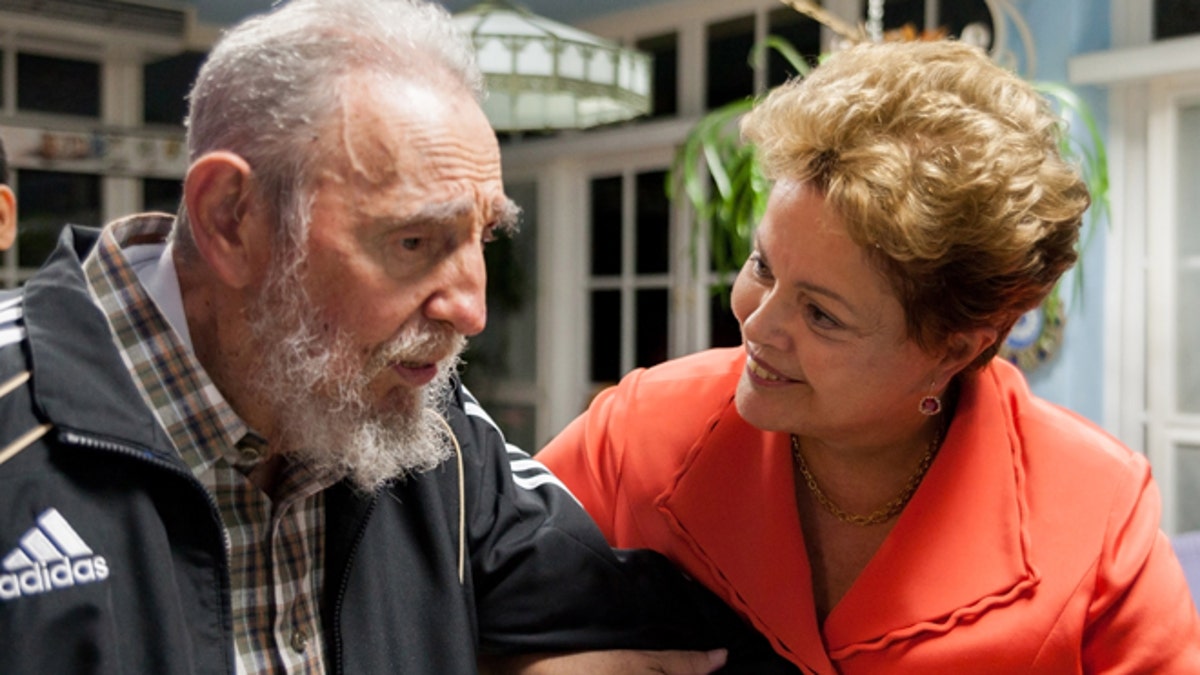Leaders line up to visit Fidel Castro in Cuba
{{#rendered}} {{/rendered}}
Jan. 27, 2014: In this photo released by Cubadebate, Brazil's President Dilma Rousseff visits with Cuba's former President Fidel Castro in Havana, Cuba. (AP/Cubadebate)
Fidel Castro has lived mostly out of the public eye since a near-fatal illness in 2006 forced his retirement after nearly five decades at the helm of Cuba.
This week he had his busiest social calendar in years as nearly a dozen world leaders attending a regional summit in Havana stopped in to pay their respects to -- and have their picture taken with -- the man considered the godfather of the Latin American left.
Photos of the encounters taken by Castro's photographer son Alex show a gray-bearded, elderly man, seemingly alert and animated. The conversations reportedly ranged from history and world current affairs to remembrances of Castro's late friend Hugo Chavez of Venezuela.
{{#rendered}} {{/rendered}}Argentine President Cristina Fernandez got things started Sunday. She and Castro sat chatting in the comfortable living room of a home where he apparently lives, along with Castro's longtime companion, Dalia Soto del Valle. Fernandez asked Castro to autograph several photographs.
Jamaican Prime Minister Portia Simpson-Miller and Brazilian President Dilma Rousseff came calling the following day. A beaming Rousseff held Castro's arm as they walked, she in a bright orange blazer and he in a striped-black track suit.
Next were Kenny Anthony, prime minister of the tiny Caribbean island nation of St. Lucia, and U.N. Secretary-General Ban Ki-moon. Ban said he found the 87-year-old Castro "spiritually alert" and physically strong.
{{#rendered}} {{/rendered}}But it was Wednesday when the Castro household really grew busy.
Presidents Evo Morales of Bolivia, Rafael Correa of Ecuador, Daniel Ortega of Nicaragua, Jose Mujica of Uruguay and Enrique Pena Nieto of Mexico all sat down with Castro, in a kind of mini-summit parallel to the one taking place nearby in a Havana convention center.
"Like him or not, he's a large figure in Latin American history, and so they visit him for that reason," said Philip Peters, a longtime Cuba analyst and head of the Cuba Research Center in Virginia.
{{#rendered}} {{/rendered}}"None of (the visitors) run a one-party state. None of them would dream of adopting his economic policies," Peters continued. "But they all probably admire the fact that he stood up to the United States for 50 years."
